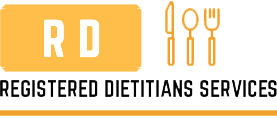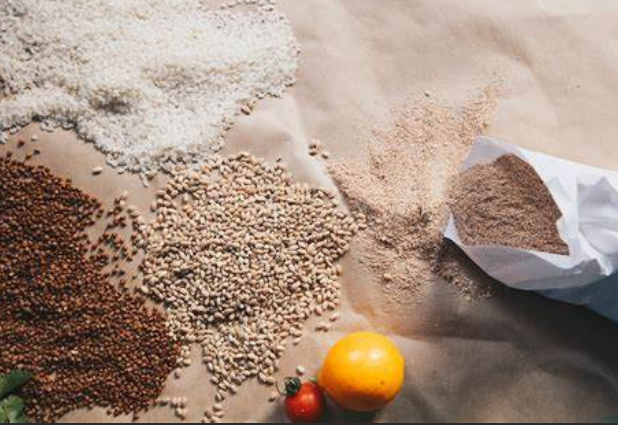What is coeliac disease (CD)?
Coeliac disease can affect both children and adults gut health. It is an autoimmune disease meaning that the immune system starts to attack healthy body tissue, in this case the small intestines. As a result, there is a chronic inflammation of the small intestinal mucosa. Patients suffering from coeliac disease have an immunologic reaction to a specific protein, known as gluten. In coeliac disease the immune system mixes gluten as a dangerous substance for the body and therefore it tries to eliminate it. When a person with coeliac disease consumes foods containing gluten the intestinal villa flattens which leads to malabsorption of nutrients.
The factors that causes coeliac disease is not entirely clear, but it seems that there is an association between genetics and environmental factors. Coeliac disease can have the onset at any age after an individual consumes foods or even medicines that contain gluten. When left untreated, the disease can contribute to serious health problems such as iron deficiency anemia, folate deficiency, osteoporosis, malnutrition, lactose intolerance and cancer.
The most common symptoms are diarrhea, bloating, abdominal cramps, malabsorption and weight loss. Children who suffer from coeliac disease may also experience growth failure, delayed puberty and chronic fatigue. Patients affected by coeliac disease may not experience all the symptoms mentioned in fact a lot of people only experience one or two symptoms. Another disease linked with coeliac disease is Duhring’s disease. This is characterized by an extremely itchy bumps and blisters scattered mainly on forearms near the elbows, on the knees and buttocks. This happens when immunological residue that eliminated gluten from the small intestines resides under the skin causing the itchy bumps and blisters.
What is the diagnosis and treatment for CD?
If you or your child are experiencing symptoms or have a family history of disease you should speak with a healthcare professional to test for Coeliac. The test for coeliac disease is done taking a blood test, first. If, you have a positive result for gluten then a biopsy need to be carried out in order to confirm the diagnosis. It is important that if you are being tested for coeliac disease you are on gluten containing foods otherwise you will have a negative result and a misdiagnosis for coeliac disease. This method described works for both adults and children although recently in September 2019 ESPGHAN recommended that a no-biopsy diagnosis can be offered to children with coeliac who are asymptomatic.
If you or your child are diagnosed with coeliac disease you should change to a gluten-free diet. Sticking to a lifelong gluten-free diet reduces the prevalence of abdominal discomfort like diarrhea, constipation, gas, bloating, nausea or vomiting, gastroparesis and prolonged transit time. This diet excludes all foods containing rye, wheat, barley and any products derived from them. Alternative foods such as rice, corn, quinoa, millet, buckwheat, potato, soy, legumes and nuts are allowed on a gluten-free diet. Below are some examples of foods containing gluten which should be avoided.
Gluten containing Foods
| Contain gluten | May contain gluten | |
| Cereals and flours | Wheat, rye, barley, bulgar wheat, durum wheat, spelt, triticale, wheat flour, wheat bran, oat bran, semolina, couscous, malt and malted barley
|
Oats |
| Bread, cakes and biscuits | Bread, croissants, brioche, naan bread, pitta bread, ordinary biscuits, crackers, ordinary cakes, muffins, pizza, pastry, croutons, pancake, Yorkshire pudding
|
|
| Pasta | Fresh, dried or canned pasta and noodles
|
Rice noodles |
| Breakfast cereals | Wheat based breakfast cereals, muesli
|
Cornflakes, rice cereals, porridge oats and oatmeal |
| Fruit and vegetables | Fruit and vegetable coated with breadcrumbs or butter or flour
|
Processed chips, mashed potatoes, canned fruit |
| Pulses and nuts | Canned baked beans, dry roasted nuts
|
|
| Milk and dairy products | Milk with added fibre, yogurt containing cereals | Coffee, tea, artificial cream, whiteners, yogurts and fromage fraise
|
| Meat and meat products | Meat pies and puddings , sausages, faggots
|
Beef burgers, canned meat products, meat pastes |
| Fish and shellfish | Fish cakes, fish fingers
|
Fish in sauce, fish pates |
| Eggs | Scotch eggs | Egg substitutes |
| Desserts and puddings | Macaroni milk puddings, trifle, sponge and suet puddings
|
Ice cream, instant desserts and mousses |
| Fats and oils | Suet | |
| Soups, sauces and seasonings | Soy sauce, mixed seasonings and spices (check label) | Canned and packet soups, sauces, ketchup, stock cubes, mustard, mayonnaise, salad cream. Salad dressings, pickles and chutneys Tamari (Japanese soy sauce)
|
| Savoury snacks | Pretzels, snacks containing wheat, rye or barley | Flavoured crisps |
| Preserves and spreads | Mincemeat, lemon curds, chocolate, sweet spreads
|
|
| Confectionery | Sweet, iced lollies, chewing gum, toffee, chocolate
|
|
| Beverages | Vending machine chocolate drinks, Barley waters, fizzy drinks, malted milk drinks, beer, lager, ale, stout and low alcohol beers
|
Herbal teas, cloudy fizzy drinks, chocolate powders, milk shakes and mixes sport and health drinks |
| Miscellaneous | Ice-cream cones, wafers, communion wafers and Quorn
|
Baking powder |
Till now a lifelong gluten free diet is the only medical treatment for Coeliac disease. A gluten-free diet manages to heal the small intestines mucosal injuries and therefore gluten induced symptoms and signs disappears. Fortunately, for future generations scientist are working on a vaccine development which induce tolerance towards gluten for both children and adults.




